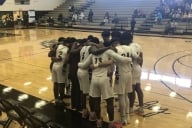You have /5 articles left.
Sign up for a free account or log in.
When the University of Michigan chose David Brandon to be its athletics director in 2010, the university touted his experience as the chief executive officer of Domino’s Pizza. At the time, the university saw his understanding of how to run a multibillion-dollar company as a fitting background for running a big-time college sports program.
As college sports have become increasingly big businesses, more institutions have made similar assessments and turned to outside business executives to run their programs – but it’s not yet clear that the shift in preferred skill sets is paying off.
A year before Brandon joined Michigan’s athletics department, Tim Pernetti, a television executive, became AD at Rutgers University, to some fanfare. He resigned four years later. Last week Brandon resigned as well, and the same sensibilities that Michigan once praised are now being blamed for the athletics director’s premature exit from the university. In both cases, the corporate-leaders-turned-athletic-directors faced criticism for failing to understand the values of universities.
In his four years heading the athletics department, Brandon rankled students, alumni, and Michigan's Board of Regents by raising ticket prices; introducing marketing tactics, such as airplane flyovers during games, that many saw as over the top; and exhibiting an apparent indifference toward some angry fans. “I suggest you find a new team to support,” he wrote in an email to one unhappy fan.
It didn't help Brandon that his tactics weren't producing winning football teams. Michigan's football team, the winningest program in the Football Bowl Subdivision's history, has lost five of its nine games this season and three of the last four games it has played against rival Michigan State University.
About 10 percent of Division I colleges currently have athletic directors with backgrounds in business rather than college sports. Nine out of the 65 institutions that make up the so-called Power 5 conferences have hired executives to run their sports programs. Glenn Wong, a sports management professor at the University of Massachusetts at Amherst, said the number of schools may still be relatively small, but they’re part of a larger trend.
“The trend is that schools will now consider athletic director candidates with nontraditional backgrounds,” Wong said. “In fact, they may even seek them out. But institutions vary considerably in terms of what they are looking for in an athletic director. It can vary from one hire to the next. For example, an athletic director may be brought in to clean up after an NCAA problem, and the next hire may be someone with strength in fund raising."
Before becoming athletics director at the University of Southern California, Pat Haden was a partner at a private equity firm. Michigan’s new interim athletics director is the former executive of a large furniture company. Even the current commissioner of the Pacific 12 conference had never previously worked in college sports.
“It used to be about hiring coaches and winning games, and now it’s about generating revenue,” said Dan Rascher, a sports management professor at the University of San Francisco. “That changed the nature of who would be successful running a program.”
When Brandon was hired at Michigan, the athletics department employed more than 250 people and generated annual revenue of nearly $100 million. In his time at Michigan, the university spent $200 million on renovating the football stadium and another $100 million improving the basketball arena. College sports are an enterprise that, at least on the surface, seems to be more in the wheelhouse of someone who has led a multinational company than a team of college athletes.
“But then they get into the culture of a college athletic program and really struggle at first, if not completely,” said Betsy Alden, president of Alden and Associates, a search and consulting firm for college athletics. “They have trouble understanding that culture and how an athletic program really runs. Even a lot of folks within higher education don’t quite get it, so they’re looking for athletic directors to get it. It can be very difficult for everyone if they don't.”
Pernetti’s resignation from Rutgers in 2013 followed a successful three years where he increased the program’s revenue and media visibility, as well as negotiated the university’s move to the Big Ten Conference. At the same time, faculty at Rutgers have long opposed the huge resources devoted to athletics there, and the jump to the Big Ten left many of them frustrated and feeling that they were not given a voice in the decision.
Pernetti was later nominated for the Sports Business Journal’s National Athletic Director of the Year, only to resign after coming under fire for not dismissing a basketball coach who repeatedly hurled basketballs and homophobic slurs at his players.
In his resignation letter, Pernetti said his instinct was to fire the coach, but he felt pressure from the university not to do so. “Rutgers decided to follow a process involving university lawyers, human resources professionals, and outside counsel," he wrote. "Following review of the independent investigative report, the consensus was that university policy would not justify dismissal.”
Brandon faced similar ire earlier this year after a quarterback who many say was obviously concussed was allowed back on the field within minutes of sustaining his injury. Hundreds of students marched to the president's home in September demanding that Brandon be fired, and more than 10,000 students signed a petition to the same end.
Rascher said athletics directors with business backgrounds may not be prepared for the culture that surrounds college sports, both from within a university and its passionate fan base. Athletes, students, alumni, fans, administrators, television networks, sponsors – they’re all stakeholders, but they’re not all necessarily expecting the same things from the athletic department.
“In many ways it is more complex than running a large company,” Rascher said. “You can’t sell it like it’s a standard product. Students have a pretty fixed income, so you can’t just raise ticket prices. You’ll maybe figure out that you can make a bunch of money by getting alcohol sponsorships, but you’ll probably have to choose not to do that because you can’t be seen promoting alcohol use to underage students. There are all these things you can’t really do that an outside business might not think twice about.”








